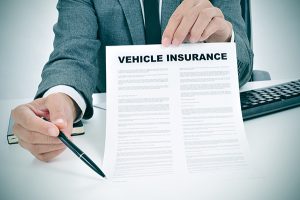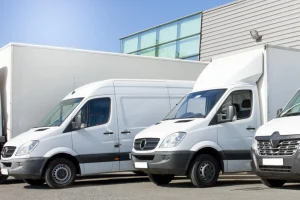When businesses purchase fleet insurance, they can easily cover multiple vehicles under one policy. This can be a good option for businesses that need vehicles for their daily operations, whether they have two cars or a whole fleet. Fleet insurance makes things easier and can save you money because you don’t have to purchase a separate policy for each vehicle. However, since there are many types of fleet insurance, you need to understand each one to find the one that’s right for your business.
1. Comprehensive Coverage for Your Fleet
Comprehensive fleet insurance covers many different types of accidents. As the name suggests, this type of insurance covers losses caused by accidents, vandalism, fire, and theft. This type of insurance is very useful for businesses that are located in high-risk areas or have expensive vehicles. Typically, the extra protection that a comprehensive policy provides offsets the higher premiums, giving business owners and managers peace of mind.
2. Third Party Only Fleet Insurance
In many places, Third Party Only (TPO) fleet insurance is the minimum required by law. However, this policy does not cover damage or injury to the policyholder’s vehicle. It only covers damage or injury to other people, vehicles, or property. While this option offers lower premiums, it is usually best suited to businesses that do not use their fleet often or have older, lower-value vehicles. When a business has TPO insurance, it can meet its legal requirements without having to pay a lot of money. However, if one of their vehicles is damaged, the business must pay for the repairs themselves.
3. Protects Every Driver
Any Driver Fleet Insurance is a flexible option that allows any authorized driver to use a fleet of vehicles while still being covered. This is especially useful for businesses with multiple drivers or where schedules change weekly. As with any driver insurance, you do not have to include each driver individually on the policy. This makes management easier and helps things run more smoothly. While premiums can be higher, any driver policy is ideal for businesses with larger or changing employees because they are flexible.
4. Designated Driver Safety Plan
Named fleet insurance, on the other hand, is less flexible because it only covers the driver named on the policy. This option may be best for smaller businesses with only a few drivers, as premiums are typically lower than any driver policy. However, if drivers who are not covered by the policy are required to operate a fleet of vehicles, they are not covered. This can be a problem if the driver needs to be replaced. Typically, named driver plans are less expensive, but they require careful planning and management when assigning drivers.
5. Telematics-based Fleet Insurance
Telematics-based fleet insurance is becoming increasingly popular because it uses technology to track driver behavior and how often a vehicle is used. Businesses that want to promote safe driving and potentially reduce insurance costs may find this type of coverage useful. Insurers can adjust rates based on a driver’s actual behavior by focusing on data such as speed, braking, and route patterns. Companies with a history of safe driving can get lower rates, making telematics-based policies a great choice for safety-conscious businesses.
6. Short-Term Fleet Insurance
Short-term fleet insurance is available for businesses that don’t need year-round protection. It allows companies to cover vehicles for a short period, which is useful for seasonal businesses or projects that only need extra vehicles for a short period. Short-term policies give you more freedom and can save you money, as they only provide coverage while your vehicle is in use. Depending on the insurance company, this coverage can last from a few days to a few months and can be renewed at any time if you need it.
7. Fleet Breakdown Coverage
Fleet breakdown cover is an add-on to your policy and provides roadside assistance and recovery of your vehicle. This can be a useful addition for businesses that need to keep their vehicles running daily, as it can reduce downtime if a vehicle breaks down. Towing, charging assistance, and fuel delivery are all common services. Fleet breakdown cover is usually combined with other types of fleet insurance to provide a better level of service and get your business up and running again as quickly as possible after a breakdown.
8. Professional Fleet Insurance
Because their operations vary widely, some businesses require specialist fleet insurance. Businesses that operate in high-risk areas, such as the transportation of hazardous materials, may need a policy specifically designed to cover these risks. If you have specialist fleet insurance, it may cover things like environmental liability or valuable cargo that regular policies don’t. This type of coverage is typically designed to meet the specific needs of a business, and salespeople often need to work closely with the business to determine what coverage is needed.
Conclusion
Fleet insurance is important for businesses that use cars to conduct business. Because policy types vary, businesses can choose the coverage that best suits their needs and budget. Businesses can make informed choices and protect their assets by understanding the different types of fleet insurance policies. These include comprehensive third-party coverage, as well as specialized policies and telematics-based options. By choosing the right fleet insurance, businesses can not only ensure legal compliance but also protect their finances and keep their operations running smoothly.
FAQs
1. What types of cars does fleet insurance cover?
Fleet insurance can cover many types of vehicles, including cars, vans, trucks, and even specialty vehicles. Be sure to check with your insurance company to see if certain types of cars are covered.
2. What are the main types of fleet insurance?
Comprehensive, Third Party Only, Third Party, Fire and Theft, Any Driver, and Named Driver are the most common types of insurance. There are also telematics-based policies and bespoke coverage for people with specific needs.
3. Does driver insurance cover anything?
Any driver insurance policy allows any licensed driver to drive a vehicle in the covered fleet. This gives you more options, especially for businesses where drivers come and go. However, the cost can be higher.
4. Does fleet insurance cover electric and hybrid vehicles?
Yes, many fleet insurers now cover electric and hybrid vehicles. Sometimes they even offer extra coverage for vehicle-specific parts or discounts for environmentally friendly fleets.
5. Does fleet insurance cover vehicles that are only used for a short period?
Yes, short-term fleet insurance is available for businesses that only need short-term coverage (such as those with seasonal or temporary vehicles).




